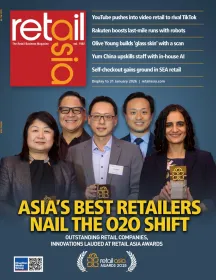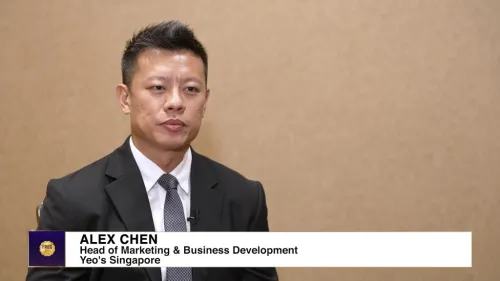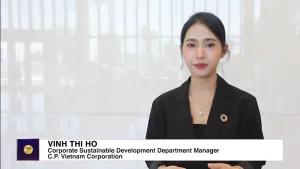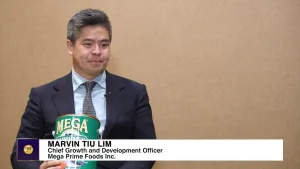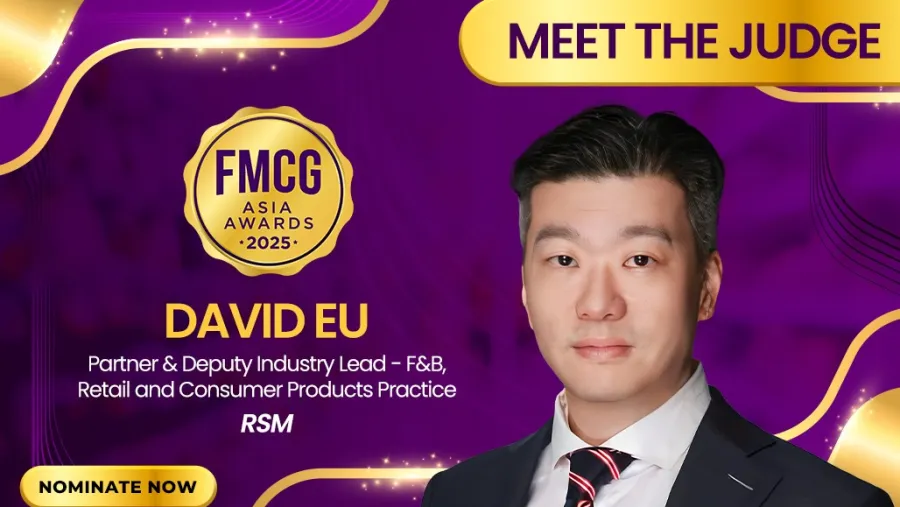
RSM’s David Eu emphasises growth, profitability, and consumer loyalty as FMCG success drivers
He highlighted how firms can balance regulation, technology, and sustainability to stay competitive.
The fast-moving consumer goods (FMCG) industry is being shaped by regulatory scrutiny, evolving consumer expectations, and rapid technological adoption. To remain competitive, companies must not only navigate compliance challenges but also reimagine business models, strengthen resilience, and harness innovation to stay ahead.
Offering invaluable insight is David Eu, Partner and Deputy Industry Lead of the F&B, Retail and Consumer Products Practice at RSM. His portfolio covers manufacturing and trading companies, retail and food & beverage enterprises, as well as publicly listed companies.
Eu began his career at Ernst & Young in 1994, managing audits for a diverse range of public-listed and privately-owned clients in banking, shipping, services, manufacturing, agriculture, and construction. He also served as engagement manager for initial public offerings and due diligence engagements.
In an exclusive interview, Eu shared his perspectives on the regulatory, technological, and structural shifts redefining the FMCG industry, and how companies can adapt with resilience and innovation.
Navigating FMCG complexities
In the environment of increased regulatory scrutiny, Eu noted some challenges of a fragmented regulatory landscape often underestimated by FMCG companies. “FMCG firms face a fast-evolving and fragmented ecosystem across multiple jurisdictions,” he explained.
Whilst most companies had frameworks for food safety, labelling, and advertising standards, many overlooked localised laws on digital commerce, consumer data privacy, sustainability claims, and packaging or waste management. These barriers add complexity, especially when expanding across Southeast Asia. Rising ESG expectations created further pressure. “Regulators, investors, and consumers now demand credible reporting on carbon footprint, supply chain traceability, and social impact,” Eu said.
Eu highlighted the role of emerging technologies, stating, "AI and predictive analytics are transforming FMCG from supply-driven industries into demand-anticipating ecosystems."
He noted that AI enabled the prediction of consumer needs through behaviour patterns, purchase history, and external signals, driving hyper-personalisation in products, marketing, and packaging. Eu also added that predictive analytics improved forecasting, inventory, and logistics, reducing stockouts, waste, and working capital. Dynamic pricing further allowed companies to adapt instantly to demand shifts, strengthening consumer connections whilst enhancing profitability and agility.
At the same time, Eu cautioned that rapid growth often concealed financial and structural vulnerabilities. Amongst the financial red flags were deteriorating working capital cycles, weak cash flow management, and over-reliance on trade promotions and discounting. Structural red flags include delayed investment in standardised processes, IT systems, and internal controls, as well as dependence on a small number of distributors or suppliers. Cultural misalignment and limited leadership bandwidth also presented risks when expanding across borders.
To balance cost-efficiency with agility and risk mitigation, Eu stressed that a change in mindset is required. “Firms must stop treating cost-efficiency, agility, and resilience as trade-offs, and instead embrace strategic flexibility,” he added.
Multi-layered supply chains, process automation, and outsourcing or centralising non-core functions offered ways to manage costs whilst maintaining adaptability. This approach allowed agility, efficiency, and resilience to work together as complementary levers for long-term competitiveness.
For FMCG brands entering modern retail or e-commerce platforms, Eu underlined the need to focus on sustainable channel performance. Beyond sales growth, companies had to measure Customer Acquisition Cost (CAC) against Customer Lifetime Value (CLV), whilst tracking sell-through rates, conversion rates, basket size, repeat purchase frequency, fulfilment efficiency, and return rates.
"Analysing these metrics together helps strike the right balance between growth, profitability, and consumer loyalty," Eu added.
Recognising industry excellence
As a judge at the FMCG Asia Awards 2025, Eu shared that he will be looking for companies leading in sustainability, digital innovation, and resilience. He recognises brands pioneering circular economy solutions, regenerative sourcing, scalable eco-packaging, AI-driven logistics, hyper-local innovation, and real-time consumer engagement as standout initiatives.
“Winners are those who use technology not only to improve processes but to reimagine the FMCG value chain end-to-end,” he emphasised.
